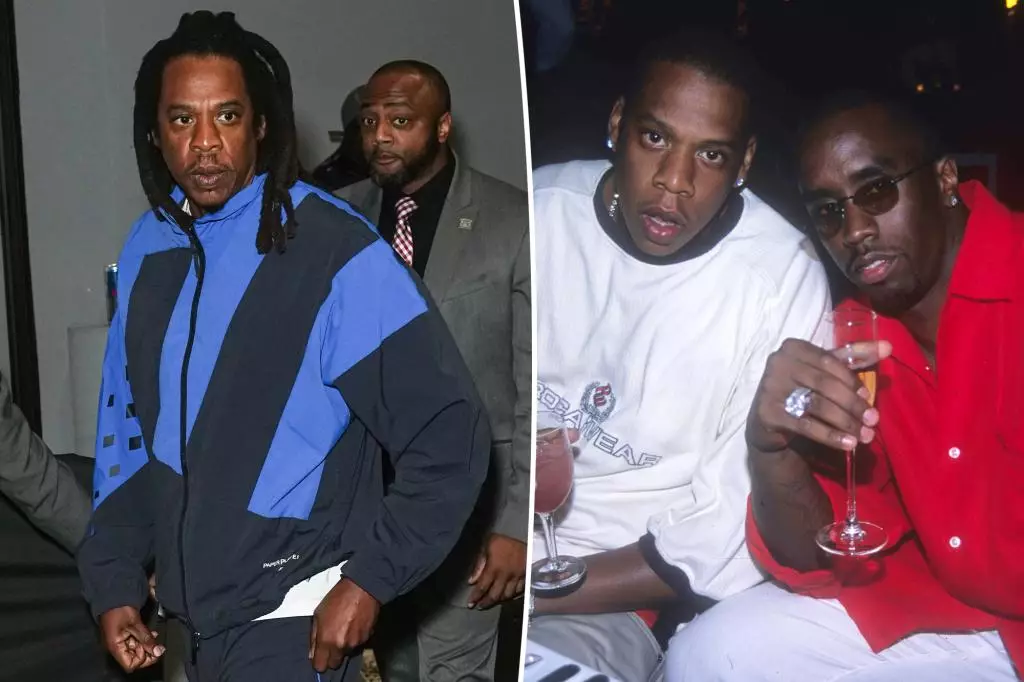In a complex legal landscape, the recent ruling allowing a rape accuser to proceed anonymously against notable figures like Jay-Z and Sean “Diddy” Combs showcases both judicial discretion and the sensitivity surrounding sexual assault cases. A New York judge, Analisa Torres, determined that the plaintiff could maintain anonymity at this stage of the litigation process, citing the significant personal risks she faces. The judge noted that revealing her identity could exacerbate her mental health issues, including depression and post-traumatic stress disorder stemming from the alleged assault. This ruling highlights an ongoing societal dilemma regarding anonymity for sexual assault victims, especially when their allegations involve high-profile individuals.
Judicial decisions on anonymity in such cases often hinge on a careful balancing act between the rights of the accusers and the defendants. In this instance, the judge underscored the importance of protecting a “particularly vulnerable” individual, further emphasizing that the court must consider the potential harm that could arise from disclosing the plaintiff’s name. While defendants have the right to know their accusers, the implications of public scrutiny can be overwhelming for victims, particularly those with ongoing trauma.
The ruling also included pointed criticism of Jay-Z and his legal team, particularly the language and aggressive tactics employed in their defense. Judge Torres reprimanded the defense for their “inflamed” motions and personal attacks, emphasizing that such a combative approach not only wastes judicial resources but also detracts from the integrity of the legal process. This underscores a broader issue within the realm of high-profile legal battles, where tactics can often overshadow the actual pursuit of justice.
While the defense relished in aggressive counters, the judge asserted that the alleged victim’s request to proceed anonymously deserved respect, particularly when weighed against the backdrop of her psychological state in relation to the case. This perspective reminds us that the courtroom is not merely a battleground for legal arguments but a nuanced environment where emotional realities must be given full consideration.
The allegations made by the plaintiff, which date back to an incident at the 2000 MTV Video Music Awards afterparty, reveal distressing patterns and questions about accountability in the entertainment industry. The claims suggest a troubling narrative where a minor became the victim of predatory behaviors by adult figures in the spotlight. The profound implications of such accusations extend beyond the individuals involved; they challenge societal narratives regarding celebrity culture, power dynamics, and the normalization of misconduct within entertainment circles.
The plaintiff’s traumatic experience, as outlined in her complaint, paints a vivid picture of vulnerability amidst perceived glamour and revelry. The details of the alleged assault raise both moral and ethical questions about consent, particularly in settings where intoxication can cloud judgment. These aspects prompt a rerouting of cultural conversations around consequences faced by powerful figures when confronted with allegations of abuse.
Public perception plays an undeniable role in the unfolding narrative surrounding this case, especially considering the media’s incessant coverage of celebrity scandals. Jay-Z’s immediate denial of the accusations and the labeling of the lawsuit as “heinous” adds layers to the discourse. The involvement of a legal representative who referred to the accuser’s attorney as “deplorable” only intensifies the already challenging media landscape.
As the case evolves, it reflects the tension between defending reputation and seeking truth. The public’s preconceptions can significantly influence legal outcomes, sometimes overshadowing the voices of the alleged victims. This scenario is compounded by the fact that Combs is already facing serious charges, further complicating the narrative and bringing a sense of urgency to the proceedings.
The ongoing legal battle involving Jay-Z and Diddy encapsulates numerous critical societal issues — the right to anonymity for victims, judicial integrity, the implications of high-profile allegations, and the ever-present influence of public opinion. As the case progresses, it will undoubtedly continue to serve as a focal point for discussions on accountability, victim rights, and the complexities of navigating the intersection between fame and justice.

Leave a Reply